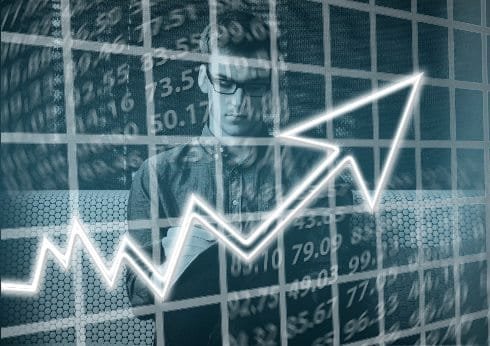How do you rank the best businesses in Europe? Is it by the amount of revenue they generate? Maybe it’s the number of employees they have? How about brand awareness and online presence?

All of these are great markers of quality and success. However, one of the best ways you can judge the success of a company is by the amount of attention it gets from traders. Today, more than ever, trading is a mass-participation activity. No longer is the buying and selling of shares and commodities reserved for those connected to a major trading house. Thanks to the internet, trading is something virtually everyone can do.
Even though the average amateur trader won’t be managing portfolios worth millions, their activity still counts. Indeed, the go-to options for many online traders are the biggest companies. In this sense, success breeds success. When a company has a high market value, it attracts more interests from traders. This further increases its market value and, therefore, its popularity.
Trading has Become More Democratic
In fact, what’s interesting about online trading is that consumers don’t always have to purchase shares in a company to trade off its value. Thanks to contracts for difference options, consumers can speculate on a company’s value without owning shares. In simple terms, traders buy a virtual “contract” which obligates them to “buy” or “sell” a set price in the future. This allows traders to speculate on either side of the coin. They can invest in a contract where they’ll make money in the company’s value increase or decreases. The online brokers that deserve investors’ attention are always regulated and offer markets for the vast majority of major companies and assets.
This is a convenient option for those can’t afford shares in a company. For example, if a novice wanted to purchase shares in Apple, it would cost them over $350/?307 per share. If you’re just starting out and have a small bankroll, you’re not going to get a lot of shares for that. CFDs provide a more affordable way to trade off a successful company like Apple. Because you’re investing in contracts and not directly in the company (via shares), it can be more affordable. On a macro scale, the advent of online trading plays into the idea that the popularity and success of a company can be measured by the investments in it. Between shares and CFD trading, you can get the measure of a company.
In Europe, some of the largest publicly traded companies are:
- Royal Dutch Shell
- Volkswagen Group
- HSBC Holdings
- Allianz
- BP
Necessity Breeds Success

What makes these companies so attractive to traders and, therefore, so valuable?
Necessity. Royal Dutch Shell and BP are two of the biggest oil and gas companies in the world. Without them, the fuel we pump into our cars wouldn’t be readily available. Then, of course, VW makes many of the cars we put this fuel into. Finally, you’ve got HBSC and Allianz, both of which make our financial lives possible and easier to manage. Although each company has its own recipe for success, the common thread that makes them all valuable is necessity.
This is something traders are very good at identifying. If there’s a need for something, it’s often a good investment. Therefore, we get back to the investment-popularity-value cycle. Because traders see value in companies like BP, they want to invest. This, in turn, boosts the company’s appeal and, thus, its value. When a company is more valuable, it’s likely to receive more investment. So, we come full circle.
When you’re trying to ascertain the true value of a company, for whatever reason, it’s worth looking at the trading interest it receives.







